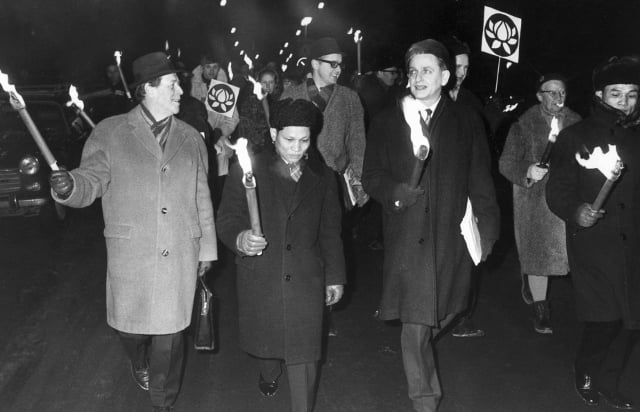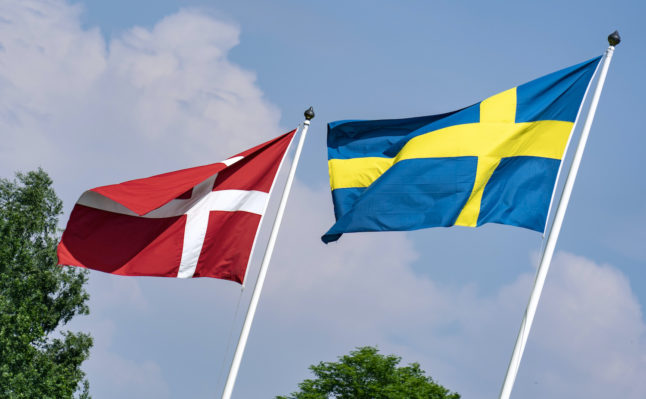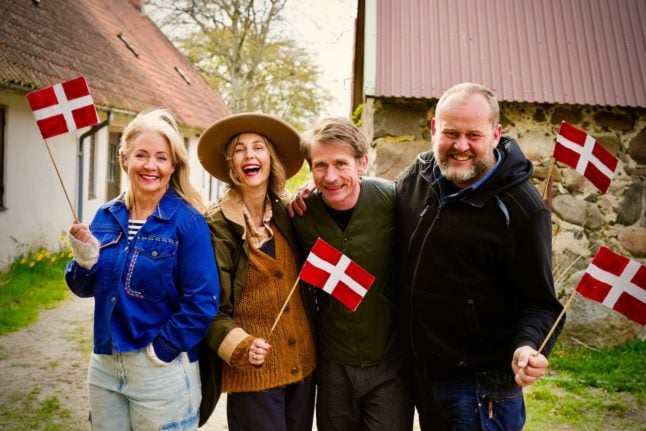In the spring of 1999, Russia’s prime minister, Yevgeny Primakov, was on a plane to Washington for talks, just as Nato announced airstrikes on Serbia. The bombing campaign, aimed at halting Serb attacks on Kosovo Albanians, targeted Russia’s Slav and Orthodox ally. On receiving the news, Primakov turned his plane around in mid-air and flew back to Moscow.
This was the first major confrontation between East and West since the end of the Cold War. Russian public opinion swung overwhelmingly behind the Serbs. Moscow liberals warned the conflict would lead swiftly to “a strongly anti-Western, Cold War-oriented regime”. Vladimir Putin became prime minister that summer. And the rest is history.
This was “blowback” for Nato – the unintended adverse consequences of a foreign policy intervention. This week, Putin is experiencing blowback himself following his invasion of Ukraine, with Sweden rushing headlong to join Nato, whose actions helped unite Russia so suddenly against the West a quarter of a century ago.
Joining Nato brings down the curtain on a remarkable period in Swedish and European history. The last time the country declared war was in 1810 against the British. Not a single shot was fired, and peace was declared again two years later. Since then, Sweden has pursued a policy of neutrality in all armed conflicts.
That era ended on Monday. The government confirmed what everyone knew already – that it would apply to join Nato.
During the Cold War, neutrality gave Sweden the freedom to manoeuvre between the two blocs led by Moscow and Washington. Sweden joined widespread condemnation of the Soviet suppression of Czechoslovakia’s democratic uprising in 1968.
But its emblematic leader Olof Palme also backed the global movement against the Vietnam war, hosting a tribunal in Stockholm that symbolically put the USA on trial for war crimes in Indo-China. Here was a nation that had found a middle way between capitalism and communism, it seemed, with a diplomatic as well as an economic dimension.
Sweden became a leading voice against nuclear weapons. Successive leaders pushed for a nuclear-free zone in the Nordic and Baltic regions. Sweden’s self-image was of a “humanitarian superpower”, its independence on the world stage spilling over into anti-colonialism and feminism.
Following the collapse of the USSR in 1991, Sweden sought to make the most of the “peace dividend” offered by the end of the Cold War, closing military bases, ending conscription and slashing defence spending. By 2012 the head of the armed forces admitted Sweden could withstand a limited attack for only about a week.
All this is now behind us. The middle way is to become the Nato way. Sweden may continue to object to nuclear weapons, but it has opted for the US nuclear umbrella to ensure its security. It may continue to champion liberal causes, but it will have to bite its tongue as its allies with conservative Nato states such as Hungary and Turkey, not to mention the possibility of a second Trump presidency in the US.
Beyond the immediate concerns about Russian intentions in Ukraine, Sweden is contributing to the return of a polarised world. The optimism and hope heralded by the collapse of communism 30 years ago have turned out to be a chimera. New generations will grow up in fear of the enemy and in the shadow of nuclear annihilation. In these bleak circumstances, we should mourn the passing of Sweden’s neutrality in global affairs.
It is unfortunate that Sweden’s historic pivot is taking place with unseemly haste. While public opinion has clearly shifted in favour of Nato since the invasion of Ukraine, the majority in favour is still relatively slim and is based on fear rather than thoughtful and thorough debate. In a poll at the end of April, 55 percent of Swedish men but only 41 percent of women said yes to Nato. There are signs that opposition to Nato among the young may actually be growing.
But the decision to join Nato is a minor tremor rather than an earthquake. While Sweden may have been non-aligned, it has not been neutral for a long time.
Sweden’s pro-Western orientation during the Cold War was an open secret on both sides. As early as 1954, Sweden signed a top secret agreement with the US regarding collaboration and intelligence sharing, including spying on Russia, whistleblower Edward Snowden revealed. Sweden already makes “particularly significant contributions” to the alliance, Nato says. Accession to the European Union in 1995 came at the cost of the abolition of neutrality as a principle.
In this sense, joining Nato means Sweden is now shedding its mask of neutrality, rather than adopting a radically new stance.
Sweden in Nato means the post-Cold War era is emphatically over. The world is entering a new and unsettling phase. “Peace, love, Woodstock, Kumbaya, let’s dramatically slash defence spending and enjoy the peace dividend — that’s all over,” said Estonia’s president after Russia annexed Crimea.
The point of any nation’s defence policy should be to provide its population with a secure space for peace, love and Kumbaya. There is an almost giddy excitement in much of the Swedish media about Nato membership. As we progress towards our armour-plated future, let’s not forget what we have lost.
David Crouch is the author of Almost Perfekt: How Sweden Works and What Can We Learn From It. He is a freelance journalist and a lecturer in journalism at Gothenburg University.





 Please whitelist us to continue reading.
Please whitelist us to continue reading.
As a Swedish immigrant I too mourn the passing of Sweden’s neutrality. Anyone who has studied Swedish history, visited the various museums which document their proud neutrality (especially during the two world wars), or even talked to Swedes, has to appreciate the role they have played in the world.
The simple fact is the world has changed — for the worst. Sweden (and especially Finland) need to adjust. And they have.
But joining NATO is not all bad. The other part of my heritage is American. That country has changed as well — back toward its isolationist past. America came to Europe’s (and the world’s) rescue in both world wars only as an absolute last resort. Churchill wisely said: “America always does the right thing — after it has exhausted all alternatives.” I have zero confidence that today’s America would rescue Sweden were it NOT bound to do so by treaty. Putin knows that — and counted on it in the Ukraine.
Let’s hope that as members of NATO now, Sweden can still swing above its weight. Hopefully they can check its worst impulses, and as well counter the increasing authoritarianism that affects many countries now.
If so, joining NATO will be a win for everyone — and especially those in Russia would would be free as well.
If you will permit the viewpoint of an American with long time ties to Sweden since I was an exchange student there in 1959 (!):
I think the World, and especially the Western community, should indeed mourn the loss of Sweden as a friendly and Western thinking but neutral friend, as we simultaneously welcome it as a NATO ally. But perhaps the best thing about this development in my opinion is the potential reawakening of Sweden’s resolve to be strong and able to defend itself. Sweden once had an innovative and impressive defense establishment centered on the idea of being able to defend against Russian invasion. If Sweden rebuilds that formidable defensive ability, I think she will be an asset to NATO and to her own people. Just because the Western nations rightly reject aggressive war, that unfortunately does not mean that we can abandon the quest for military strength. In fact in this age of nations ready to play the role of lawless thugs, only military strength and resolve can prevent them from making a joke out of our rejection of aggressive war. So welcome Sweden to NATO. We hope and expect that you will continue to be the Sweden that we have known and respected for many years.
They will not be allowed to become Members so it’s a very bad situation Sweden has been led into . The World now knows the true Sweden and it is not a Neutral Country in any way shape of form , so that myth has been destroyed . When Turkey Vetoes them they will be on their own without the respect that was once their strongest weapon , known as a stooge to the CIA , NATO and the EU led by incompetent idiots . I have made this clear to the Prime Minister and the Foreign Minister and they have not once responded . Biden has used Sweden , one Destroyer off Sweden and a few German troops mean nothing to the shame this government of amateurs has brought upon the Swedish people who will now pay Russia in Roubles like everyone else is doing a victory for Putin and China that the Eurodollar is dead . The Saudis are turning to the Yuhan and they like Turkey watched the Race Riots in Sweden and Korans being burnt by Swedes while the Swedish Police killed protesting Swedish Muslims . They knew the Danish Racist was coming , they knew what he was going to do but allowed it to happen , then have the cheek to ask Turkey to sign after harbouring Political Enemies of Turkey in their thousands . White Supremacy 101 as displayed by Sweden and Finland . When the GAs Prices and Electricity Bills start increasing , or food shortages hit both Sweden and Finland , please look at these to would be Napoleons and ask them how much were you paid to sell us down the drain .